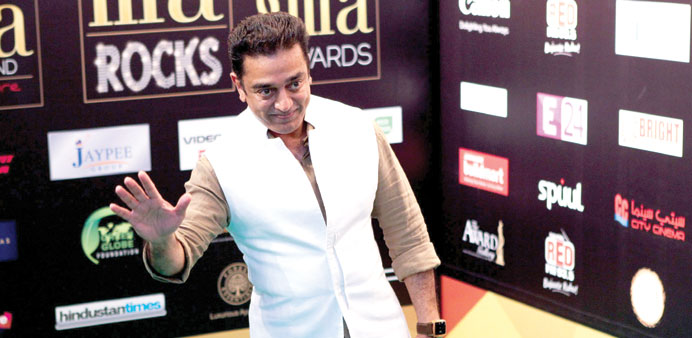By Gautaman Bhaskaran
Some years ago, when I was researching for and writing a biography of Adoor Gopalakrishnan, my son and his friends were not quite excited about it. They felt that I should be doing books on Rajnikanth, Kamal Hassan, Amitabh Bachchan, Aishwarya Rai and such actors who are covered in glitter and glamour.
Strangely, most publishing companies too felt exactly that way. A book must, above all, must sell, they had told me when I was knocking doors for the Adoor project. After all, how many people in India know Adoor? On the contrary, most of them are extremely familiar with names like Bachchan and Rajnikanth. They stressed and re-stressed this.
Penguin turned out to be an exception. Its managing editor, Udayan Mitra, lapped up the idea of a biography on Adoor. “For years, we have been trying a get a book out of him, but he has been unwilling to give time to any writer, Mitra averred. We would love it if you can write one on him”, he added.
Of course, Adoor was willing to give me time and permission to pen his biography. An important reason must have been my long association with him. We were actually friends (we still are), despite an age gap. Also, Adoor knew my work, having followed it for years, and he respected it.
The Adoor work also came because Ganesan Balachander of Ford Foundation gave a liberal grant for research without which it could have been very difficult to travel to Thiruvananthapuram (where Adoor lives) and Pune (where Adoor’s movies are available at the National Film Archives) from Chennai (where I reside).
The biography in English was translated into Tamil and Malayalam, and did well — though not as well as Penguin might have hoped for. Obviously, like an arthouse movie, a book on Adoor is bound to have only a niche readership. Not a mass readership.
But I was very happy, because my first book was on someone like Adoor, who made sensible, sensitive and meaningful cinema. I never regretted that I did not make enough money out of it.
In the months that followed the publication of the Adoor biography, I went back to Penguin asking them whether they would like me to write on Aravindan, Girish Kasaravalli and Krishnaswamy. Like in the case of Adoor, there is virtually no significant work on these men. Unfortunately, Penguin — which subsequently came out with books on Mani Ratnam and Rajnikanth — seemed to be not interested in books on so-called arthouse directors.
During a telephone chat with me the other day from New Delhi, Mitra regretted that even the Rajnikanth book was not doing as well as it had been expected to do. Forget Mani Ratnam. “A large chunk of our readership is in the north of India, and it does not care much about Rajnikanth or Ratnam”, he quipped. “So it makes very little business sense for us to publish books on such people”.
However, Mitra was keen that I write a book on Kamal Hassan. A great idea on paper, but how feasible would that be? Will the superstar give me time to talk to him without which a biography or any book on him will not be possible?
Here is one fact to vindicate my apprehension. For the past three months, I have been trying to talk to Kamal, and, of course, I do not have his mobile number. My innumerable calls to his PRO, Nikhil Murugan, did not help. I was repeatedly told that “Sir” was busy, but my message had been delivered and that he would get back to me.
Last week, when I phoned Murugan for the enth time, he was apologetic but helpless. He said that “Sir” was ill and in bed for 20 days, and was not taking any calls. Not even from his close associates and friends. I was quite angry and told Murugan that Kamal, for ALL THE YEARS I have known him, could have at least sent me a small regret message — instead of having kept me in suspended animation. This would have been professional ethics.
I have met and interviewed some of the greatest celebrities at home and abroad — Sydney Poitier, Denzel Washington, Robert De Niro, Woody Allen, Penelope Cruz, Angelina Jolie, Lars Von Trier, Ken Loach, Gerard Depardieu, Satyajit Ray, Mrinal Sen, Buddhadeb Dasgupta, Aravindan, Girish Kasaravalli, Rekha, Smita Patel and Shabana Azmi among many, many others, not to mention men and women outside the world of cinema. I have never had problems meeting them or getting an appointment. The process has been simple, and the answers clear. Yes or No.
Nobody has ever kept me dangling like Kamal Hassan has. And Kamal and I live in the same city, barely a few kilometres from each other. And Hassan knows me well enough. De Niro does not. Washington, Jolie, Loach … no way. Yet they or rather their publicists have been professional enough to glance through my bio sent along with my request to grant an interview. They have done it without the least hesitation.
This is THE problem in India, a serious lack of professionalism which impedes work, serious work. And nobody bothers.
So, I have to tell my son and friends that Penguin could give me a contract to write a book on Kamal, and I could sign that, but the work may never happen. Because Hassan may not co-operate. He has not given me a 30-minute interview. How is he going to spend hours with me? In spite of all this, I am left with a deep sense of regret. That a man like Kamal, a great actor indeed, must choose to hold himself incommunicado.
(Gautaman Bhaskaran has followed Kamal Hassan’s career in its entirety, has seen
all his films, and may be e-mailed at [email protected])

Kamal Haasan ... see you later, or not at all.
